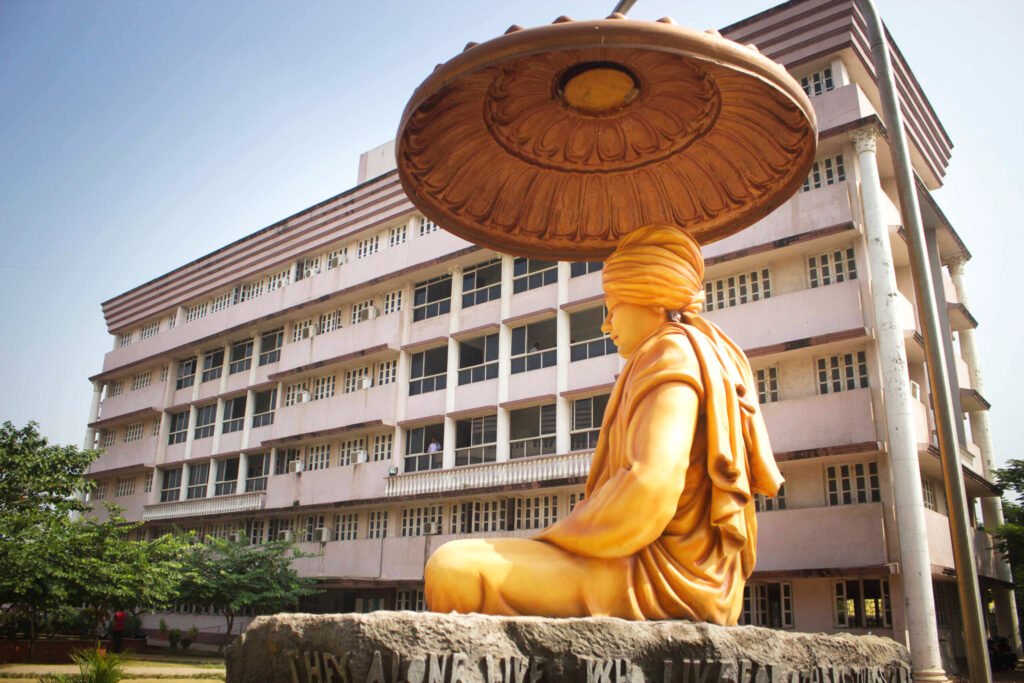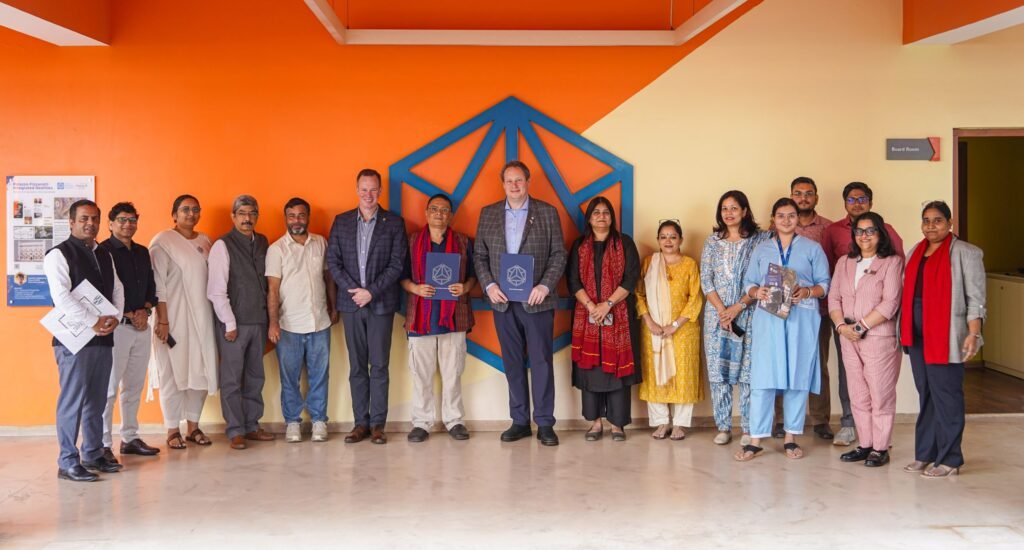IIM Amritsar’s fourth IT & Analytics Conclave, Vyakriti’24, explored the intersection of digitisation and trust, highlighting innovation, data privacy and ethical implications in the rapidly evolving digital landscape.
IIM Amritsar concluded its fourth annual IT & Analytics conclave, Vyakriti, 2024. The event took place at the Hyatt Regency, Amritsar. Vyakriti extends a new meaning to digitisation and projects transformative insights from the world of technology and innovation in alignment with the current trends.
The event was inaugurated with a lamp-lighting ceremony with Mahima Gupta, Dean of Academics; Swapan Deep Arora, Students Affairs Chairperson; Sunil Reddy Kunduru, Faculty Anchor, Analytics and Business Computing Club; Aswathy Asokan Ajitha, Media and PR Chairperson; Kalpit Sharma and keynote speaker, Goutam Datta and the guest speakers.
Following the ceremony, Mahima Gupta took the dais to address the gathering. In her speech, she emphasised the exploration of social and ethical implications of digitization while upholding the values along with anticipating the technological changes. She underscored the significance of conclaves like Vyakriti to build strong relationships with the corporate world and how they focus on emerging trends, facilitating a learning experience for the students of IIM Amritsar.
Following the address the students of IIM Amritsar, Yastika Jain and Rishabh Rai presented the theme for the conclave, “Digitisation and Trust: A Double-Edged Sword Shaping Our Future.” They highlighted that the rapid digitisation of industries has brought innovation and growth but also heightened risks such as data breaches, security vulnerabilities and increased fear of job losses. While digital tools like Tesla’s auto-driving and Aadhaar showcase progress, the dark side includes rising data privacy concerns, costly migration projects and internal resistance. Tackling these barriers requires enhancing data security, change management and customer experience. The future of digitisation hinges on trust, making transparency, efficiency, accessibility and security essential pillars to ensure sustainable growth amidst risks.
The keynote speaker for the event Goutam Datta, Chief Information & Digital Officer, Bajaj Allianz Life Insurance delivered a speech on how trust is complex in the digital age, using examples like Uber and Ola, where users quickly accept prices without questioning. While digitisation enhances convenience, it also has a darker side, as seen in credit card companies tracking purchases to curate ads, which can lead to data breaches. He highlighted how insurance companies like Bajaj Allianz rely on customer trust and if data is leaked, it can damage both trust and the business model. He also touched on major data breaches involving Aadhaar, Paytm and Indian Railways, stressing that while technology can advance fields like medical research, especially in rural areas, it also presents significant risks if data security is compromised. He emphasised that trust remains the foundation for future progress.
Datta’s address opened the floor for the panel discussion moderated by Mansi Thapar, Global Cyber Security Head, Apollo Tyres. Thapar engaged the panel and the students with thought-provoking questions regarding the misuse of personal data, steps taken by the Government and organisations to enhance data privacy while balancing the use of data with security, and automation and AI.
The discussion with the panellists progressed on how the organisations must reskill employees for future roles. Thapar also mentioned the ethical dilemmas around digitisation and the responsible use of data. She stated that public awareness is key and governments can promote awareness through reports on vulnerabilities, encouraging people to protect their digital identities and remain cautious about their digital footprints.
Other panel members also contributed to the discussion. Prashant Dahalkar, Vice President, Hexaware Technologies, spoke about how digitised processes like KYC have boosted efficiency, but faster government action on data privacy is needed. Organisations should adopt better tech, and consumers must manage data exposure. While healthcare and education have advanced, rural areas lack access to tech like IoT. He highlighted the necessity of stricter and timely laws for data protection.
The event concluded with a Q&A segment, a vote of thanks, and a video showcasing the highlights curated by the Media and Public Relations Committee of IIM Amritsar.



